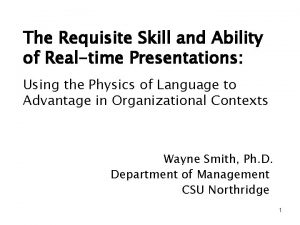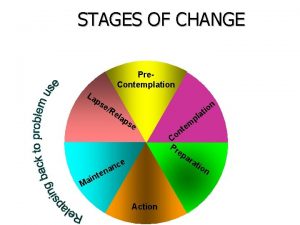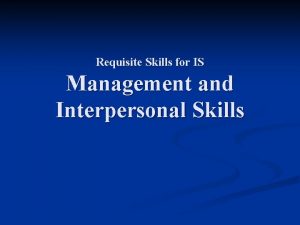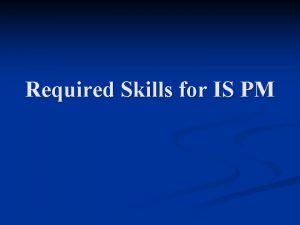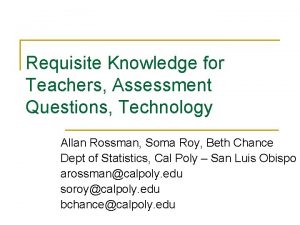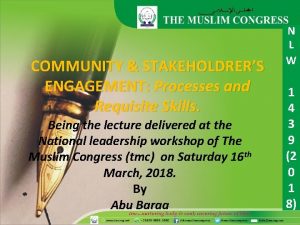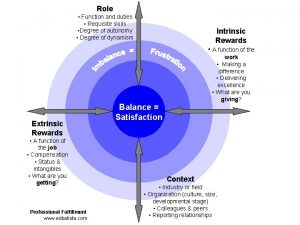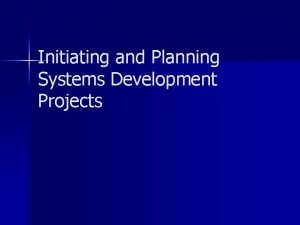Requisite Skills for IS Analytical Skills Contemplative Questions












- Slides: 12

Requisite Skills for IS Analytical Skills

Contemplative Questions What skills are important for work in IS? ü Do I have these skills now? Or, do I need to acquire them? ü Why do I need them? ü 2. 2

List of Skills ü Analytical skills ü Systems thinking (see separate slides) ü Organizational knowledge ü Problem identification ü Problem analyzing and solving Technical skills ü Management skills (see separate slides) ü Interpersonal skills (see separate slides) ü

Organizational Knowledge n Good systems analysts (and employees, in general) understand how organizations work. It is critical to your survival and success in your career. n n n 2. 4 n e. g. Who makes the decisions? Who owns the data? Who will resist change? Whom do people follow? Knowledge of specific functions and procedures of organization and department How work officially and unofficially gets done Internal policies, both formal and informal External factors: Competitive and Regulatory Environment Internal factors: Organizational Strategies and Tactics

Problem Solving n A “problem” can be defined in many ways. A generic but useful definition may be a problem is n n “A discrepancy between an existing and desired state of affairs” Problem identification and problem solving are two different things “A problem well-stated is a problem half-solved. ” n “A most dangerous and common trap” n One of the most important and universal concepts you will learn in this course n

Problem Identification and Solving 1. 2. 3. 4. 5. 6. 7. 8. Identify the problem (The Identification) Define the decision criteria (Start the Solving) Weight the decision criteria Develop alternatives Analyze each alternative Select an alternative Implement alternative Evaluate outcome of decision (End the Solving) Which of these steps is most important?

Some “Problems” Encountered With Problem Solving n n n Failure to recognize existence of a problem Failure to define the correct problem Failure to use all available information Failure to recognize and question assumptions Failure to consider a wide range of alternatives Failure to address implementation issues

Root Cause Analysis n n n Symptoms Identify symptoms Trace each symptom back to its causes “The Five Whys” “If there was one thing I wish I had learned when I was younger…” Five whys Symptoms ROOT CAUSES

Problem Analyzing and Solving n Four Phases n Intelligence n All relevant information is collected n Design n Alternatives are formulated n Choice n Best alternative solution is chosen n Implementation n Solution is put into practice

Technical Skills for Systems Analysis n n Constant re-education is necessary as technology changes rapidly Activities to keep skills up-to-date n n n n Trade publications Professional societies Attend classes or teach at a local college Attend courses sponsored by organization Conferences and trade shows Browse Websites Participate in new groups and conferences

Technical Skills for Systems Analysis n Understanding of a wide variety of technologies is required n n n n Microcomputers, workstations, minicomputers and mainframe computers Data communication standards Operating systems Database and file management systems Programming languages Systems development tools and environments Web development languages and tools Decision support system generators

Summary n Skills of Successful Systems Analyst n Analytical n n Systems Thinking Technical n n n Change over time Programming Languages Operating Systems Database Management Systems Data Communications Systems Development Techniques
